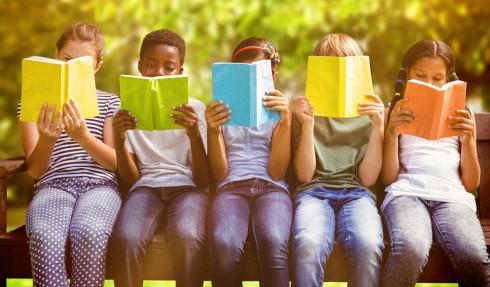A new study gives parents another reason to read to their kids
A new study finds that the text of children's books contains substantially more unique words than ordinary parent-child conversation, which may help explain why reading to children is so important to their development.
“We've known for a while that there are a lot of benefits to reading to kids, in terms of vocabulary and language development and later literacy. The real question is, why,” says Jessica Montag, an assistant research psychologist at University of California Riverside, and author of the new study in Psychological Science.
Now Montag believes she has found one answer to that question: the text itself.
“The guiding question for this work was, 'What might the text of the books be providing that everyday speech is not for these children,'” Montag says.
So she and her colleagues compared transcriptions of everyday conversations between parents and children to the text from a hundred children’s picture books, compiled largely from the reading lists of teachers and librarians, Amazon best sellers and circulation statistics from the local public library.
“When we compared our text of transcribed books to an equally sized amount of speech-to-kids, we found about 70 percent more unique words in the books than in the speech,” Montag says.
Seventy percent isn’t a magic number, Montag cautions. That figure is tied to the sample size and the various methodological choices they made in the study. Nevertheless, she says, “the takeaway point is that there were clearly and substantially more unique words in the text of the picture books than in a matched sample of speech-to-kids."
“I think the real benefit of books is that they introduce new topics and new words that are generally outside the scope of a child's day-to-day life,” Montag explains. “Speech-to-kids is a lot of, ‘aren't those carrots good,’ ‘put on your shoes,’ and things like that. But books allow you to talk about more different things in more different contexts…It’s a lot of really fun play, with stories and with language.”
Montag’s next line of inquiry is looking at sentence-level differences between books and speech. She believes the variety of sentence structure in books may also have important benefits for children.
“I think it's [both] the text and the types of sentences,” she says. “Rarer sentences, more complex sentences, as well as rarer words that may not be something you'd say if it weren’t printed in the text.”
Want an example? Here's one sentence from E.B. White's "Stuart Little": "One morning when the wind was from the west, Stuart put on his sailor suit and his sailor hat, took his spyglass down from the shelf, and set out for a walk, full of the joy of life and the fear of dogs." In that manner, with a rolling gait, the little mouse sauntered toward Fifth Avenue in Manhattan.
This article is based on an interview that aired on PRI’s Science Friday with Ira Flatow.
See below for a list of great science books recommended to Science Friday by children’s author Jacob Berkowitz and Maria Popova, editor of Brain Pickings.
Maria's picks:
(1) You Are Stardust, by Elin Kelsey and Soyeon Kim (2012)
(2) I, Leonardo, by Ralph Steadman (1983)
(3) Me…Jane, by Patrick McDonnell (2011)
(4) Evolution: A Coloring Book, by Annu Kilpeläinen (2014)
(5) The Amazing Discoveries of Ibn Sina, by Fatima Sharafeddine and Intelaq Mohammed Ali (2015)
(6) Summer Birds: The Butterflies of Maria Merian, by Margarita Engle and Julie Pashkis (2010) Read more on Brain Pickings
(7) Big Questions from Little People & Simple Answers from Great Minds, Ed. Gemma Elwin Harris (2012)
Jacob’s picks:
(1) Buried Sunlight: How Fossil Fuels Have Changed the Earth, by Molly Bang and Penny Chisholm (2014)
(2) Next Time You See the Moon, by Emily Morgan (2014)
(3) Body Bones, by Shelley Rotner and David A. White (2014)
(4) Get the Scoop on Animal Puke, by Dawn Cusick (2014)
(5) Red Madness: How a Medical Mystery Changed What We Eat, by Gail Jarrow (2014) Read more on Scientists’ Bookshelf
(6) Chernobyl’s Wild Kingdom: Life in the Death Zone, by Rachel Johnson (2014) Read more on Scientists’ Bookshelf
Recommended by Science Friday callers:
Big Bang!: The Tongue-Tickling Tale of a Speck That Became Spectacular, by Carolyn Cinami DeCristofano and Michael Carroll Chameleon
Chameleon, by Joy Cowley and Nic Bishop
Girls Who Looked Under Rocks, by Jeannine Atkins and Paula Conner
Feathers for Lunch, by Lois Ehlert
